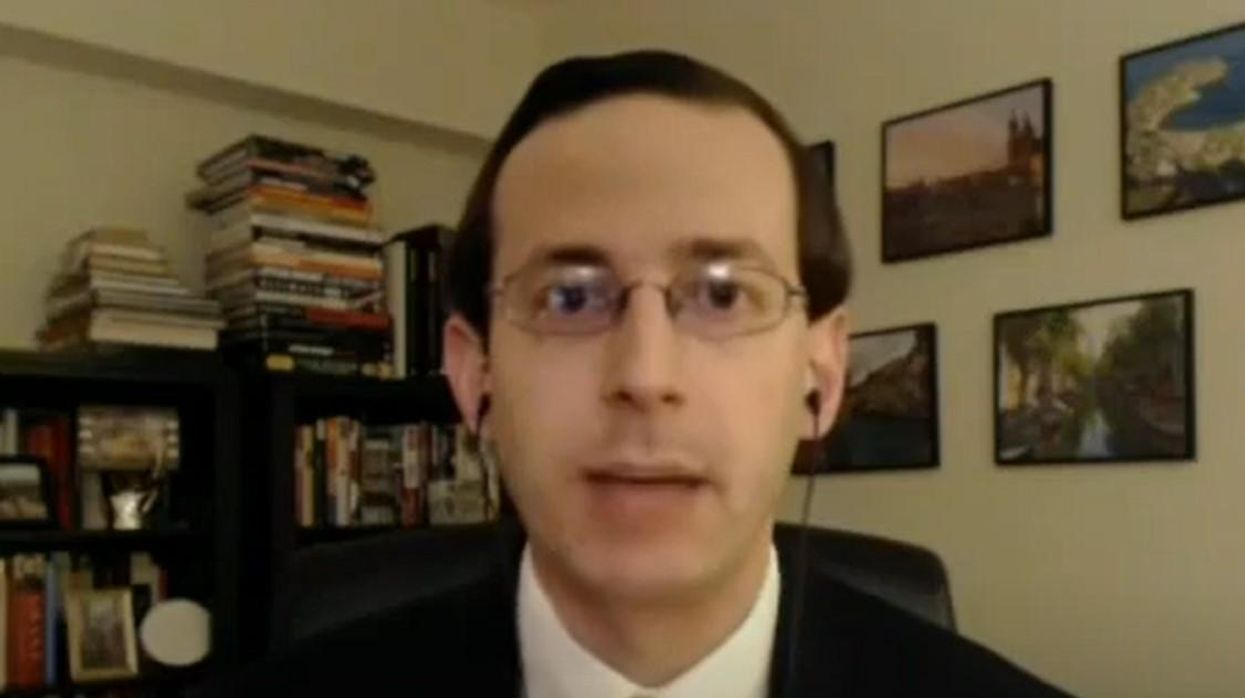
Screen shot of MSNBC YouTube video

A recent report from Politico suggests that voting machines currently in use in several swing states can be hacked. However, the author of the piece also insists that any hacking that might occur in future "wouldn't actually corrupt an election’s outcome."
On Friday, Politico published a piece by Eric Geller, a "cybersecurity reporter" who "covers the federal government’s cyber defense activities," according to his bio. In the piece, Geller suggested that voting machines attached to cellular modems could become a "target" for hackers and for those who wish "to sow doubt about vote tallies in the November midterms."
Geller claimed that at least some counties in several swing states — including Florida, Michigan, Iowa, and perhaps Wisconsin — use voting machines with modems for one reason: speed. Geller explained that the public wants results as quickly as possible and that alternative methods of reporting, such as by phone or by vehicle, either are unreliable or cause unnecessary delays.
"There is an appetite in the public for immediate results," said election supervisor Paul Lux of Florida. "And [using modems] is the best way to do that."
Unfortunately, those modems which are great for speed are also vulnerable to cyberattack, Geller alleged, citing other cybersecurity experts who have expressed similar concerns.
"Modem use expands the threat surface area [that] election officials are forced to defend against all hazards including cyber, operational mistake[s], misinformation and fairy tales," said Noah Praetz, who was once election director of Cook County, Illinois.
Dan Wallach, a cybersecurity professor at Rice University, added that such modems can also be exploited by "nation-state hackers" eager to infiltrate America's voting "infrastructure."
Geller also noted that many security teams around the country have taken several steps — including encryption and setting up special networks — to defend voting machine modems from cyberattacks. However, none of their efforts is "foolproof," Geller wrote.
While Geller seems to position his piece as a warning about the security of American elections, some on the political right have speculated that Geller is instead providing a preemptive excuse for Democrats, should Republicans prevail decisively in November.
"This is what Democrats do when they fear a loss," Mike Cernovich wrote on Twitter. "They pre-seed a narrative as an insurance policy. In the event of a big Republican win in the mid-terms, it will once again become socially acceptable to questions election results and make broad and vague claims of voter fraud."
"Totally weird how discussion of election machines is either dangerous, Trump-supporting, election denying, conspiracy theorizing OR standard Democrat messaging … depending on the cycle," tweeted Mollie Hemingway of The Federalist.
Geller claimed that at least some counties in several other states — including Rhode Island, Illinois, Massachusetts, and Minnesota — and the District of Columbia use voting machines attached to modems. Other states — such as Alabama, California, Colorado, Maryland, New York and Virginia — have banned the practice. In 2019, the Senate Intelligence Committee voted to recommend that modems either be disabled or removed from voting machines entirely. The U.S. Election Assistance Commission added a similar recommendation to its list of voluntary guidelines last year.